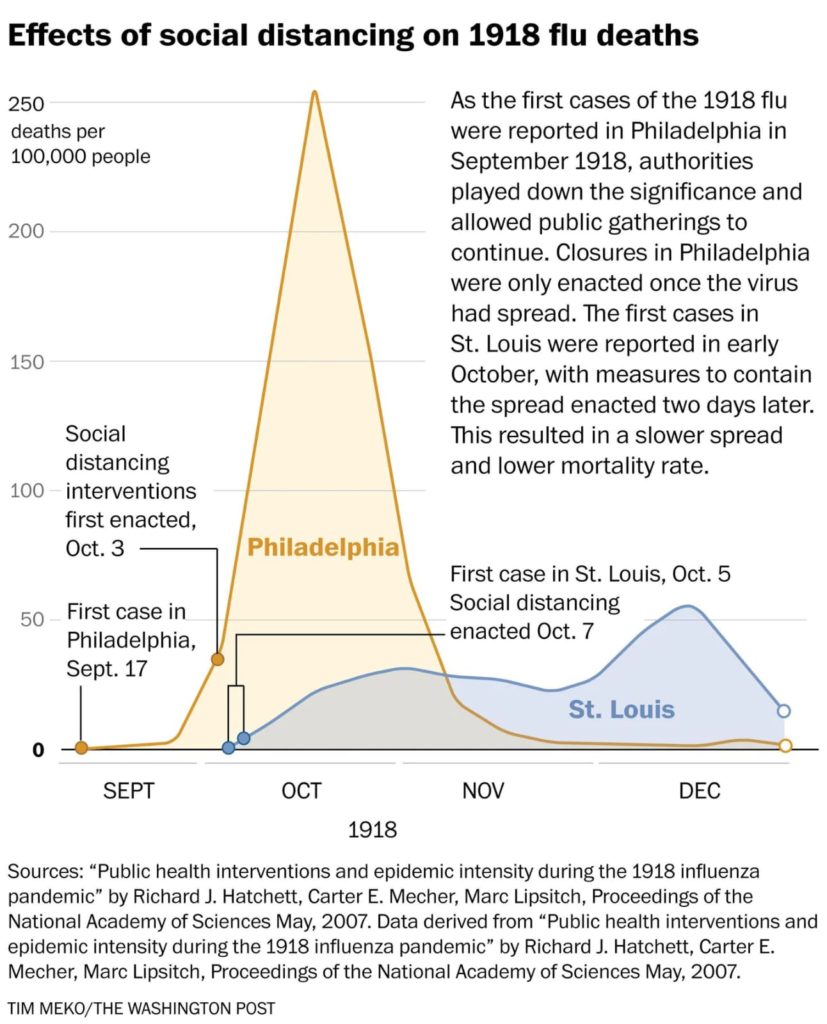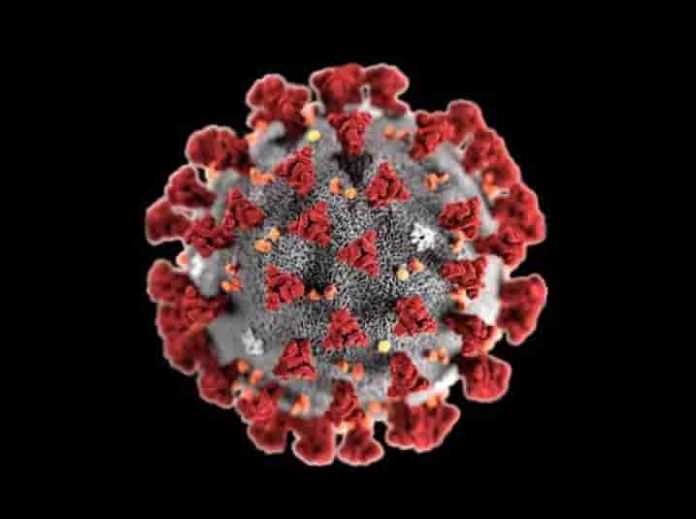Never miss a deal: Follow us on the DansDeals App, WhatsApp, X, Telegram, Instagram, Facebook, SMS, or our Daily Email Digest.
Links may pay us a commission. We appreciate your support! View our advertiser and editorial disclosure here. The content on this page is accurate as of the posting date; however, some of the offers mentioned may have expired.
JJ’s Note: This article was written by my Father-In-Law, Dr. Robert Freedman, who is the Chief of Infectious Diseases at multiple hospitals in Miami, Fl. You can also view his blog at https://mymdmiami.com/what-is-social-distancing-stop-the-spread/. This is a 2nd post in a series of posts about COVID-19, you can read the first post explaining what COVID-19 is here. If you have more questions leave a comment below!
Written by:
Robert A. Freedman, M.D.
Board Certified Internal Medicine
Board Certified Infectious Diseases
Chief of Infectious Diseases
info@mymd.us (Questions submitted will potentially be answered in future articles/updates)
—
After my previous article on the 2019 Novel Coronavirus, (COVID19), I received many questions which revealed people needed clarification and direction with regard to the term “social distancing”. This term primarily means limiting one’s contacts and keeping a minimum distance of at least 6 feet from those contacts. For example, established Infectious Disease practice is that when a patient enters a hospital with any communicable disease, (such as certain forms of bacterial meningitis, tuberculosis, influenza, etc.), we place them in isolation rooms. We do not want to expose other patients or healthcare personnel in the hospital, because they would be at risk for contracting the disease and passing it on to even more people. This is how we contain and prevent spread of infection. Our community, and everyone’s community, needs to represent basically a microcosm of what we do in a hospital setting. That means everyone needs to stay away from congregating in large groups of people – since you don’t know:
- Where they’ve been
- Who they’ve been in contact with
- If they’ve been exposed
- If they are experiencing symptoms.
Social distancing helps protect you and everyone else from these unknowns.
In the modern medical era, we have been able to stop the spread of many viral diseases that have previously devastated communities, through the development of vaccines. These have prevented people from contracting illnesses such as polio, influenza, measles, mumps, rubella, chickenpox, hepatitis B, pertussis, etc. The reason we are recommending this harsh/drastic measure of social distancing is primarily because we do not have a vaccine yet for COVID19. Therefore, we have had to revert to a primitive pre-vaccine method to stop the spread of the disease, which is social distancing.
As a new virus, we are just learning about its transmission, symptomatology, and complications. As we speak, vaccine development is ongoing and there is research and testing being conducted to develop antiviral medications. The current methods being recommended in the United States of closing schools, universities, museums, parks, sporting events, concerts, synagogues, churches, houses of worship etc., is to prevent people gathering in large groups where the spread of the virus can occur. When we gather in large groups, someone in the group may be experiencing a minimally symptomatic disease process (meaning they may not really feel ill) and unknowingly be shedding the virus (which means they are contagious), and then potentially spread it to other healthy people, who will then spread it to their contacts, and so on and so forth. Social distancing allows each of us to have better control of our contacts, and as a result, hopefully have less exposure to the illness.
The graph below, copied from the Washington Post, demonstrates how effective social distancing was in decreasing the spread and mortality rate of the 1918 influenza pandemic when we were in the pre-vaccine era.

I would like to re-emphasize that in the overwhelming majority of cases, COVID19 is essentially a benign disease (not serious) which results in mild symptomatology that could include fever, cough, nasal discharge, sore throat, mild flu like symptoms, etc. These symptoms will resolve in a few days with no complications. The danger of this disease however, and those at risk for severe complications of COVID 19 are primarily the elderly, people with pre-existing medical conditions, and immunosuppressive disorders. Therefore, practicing social distancing is primarily to protect these members of a society.
I believe the time has come for all of us to come together as one people, and take responsibility for those in our community at the greatest risk for the severest complications of this illness and take the practice of social distancing very seriously.
I hope I have clarified some of your questions and will address new developments as they unfold.




![[Lufthansa Group Extends Cancellations, Discounted El Al Flights] Missile From Yemen Hit Grounds Of Ben Gurion Airport: Delta, United, Aegean, Air France, Austrian, BA, Iberia, ITA, LOT, Lufthansa, Swiss, And More Airlines Cancel Flights](https://i.dansdeals.com/wp-content/uploads/2020/08/16160333/dansdeals-glitch-fare-1024x538-1-286x150.jpg)



![[Book Today To Save 50% Off Kids Fares] Here Is How To Stack Your JSX Credits From Multiple United Cards, Plus Get A $100 Flight Credit, For Free Flights!](https://i.dansdeals.com/wp-content/uploads/2025/04/24162909/20230911_071252.jpga_-350x150.jpg)









![[AMEX Explains Upcoming Points Transfer Pause To Emirates] Ultimate Guide To Bank Points Transfers; Including All Current Bonuses And Transfer Times!](https://i.dansdeals.com/wp-content/uploads/2020/08/16160333/dansdeals-glitch-fare-1024x538-1-133x70.jpg)




Leave a Reply
22 Comments On "Op-Ed: Stop The Spread – Social Distancing Explained"
All opinions expressed below are user generated and the opinions aren’t provided, reviewed or endorsed by any advertiser or DansDeals.
Do we actually know how the virus spreads?
They believe they know, but they’re not 100% certain yet that they know EVERY way it spreads.
Dr. Freedman this article as well as the previous one were very clear and informative. I had a question-Assuming the COVID19 is unlike the flu in that it is not weather dependent we can therefore assume there will always be people out there withe the virus so will we need to practice social distancing until a vaccine is approved and widely administered? this seems like a never ending battle-where is the light at the end of this dark tunnel?
JJ, those of us who follow Dansdeals are fortunate that you married Dr Freedman’s daughter so that you can provide us with his insights regarding the threat we face,
What does social distancing mean? we live in a tiny Brooklyn apt with 3 small children. does that mean we can’t take them for a walk? to the store?
Do we shut our shops to the public BC we dont know which customers are infected? what exactly does social distancing mean?
It means you must use common sense. You can – and should – go for a walk. But NO, the whole family shouldn’t go into the store. You should NOT visit and hang out in friends’ homes. Synagogues are off limits, as are churches, etc. If you operate a store, all employees should wear gloves. Have a visit to Target or Walmart and you’ll see how they’re handling this.
Stores open but not shuls? Why?
Stores that sell food and medicine are necessity. A shul isn’t. They are not recommending you go to the store all the time Or with your entire family
Shul is a necessity as well as boys schools/ chedorim. Do you think you know better than Maran HaRav Chaim Kanievsky Shlita?
Just stop Mike. This is a GLOBAL crisis that has changed the world. The necessity is the preservation of life!
Sounds like the well defined people at risk need to quarantine and everyone else can treat this like any other flu. What is going on now is way out of proportion.
Yehuda. You cannot quarantine people 100%. An immuno compromised 5 year old lives with their family, at least one of whom will leave the home. Elderly people have to go to the doctor and will leave the house to do so.
And young people are getting it
Those are risk are often cared for by those not at (as much) risk. Therefore, if we just let it spread we are putting the vulnerable at risk as well.
More than 50% of the 300 Covid-19 cases in critical condition in France are under 60.
Meanwhile in the Netherlands, over half are reportedly under 50 years old: “The professor of intensive care medicine, who himself heads the ICU of the Rotterdam Erasmus MC, emphasizes that it is not only the elderly who are affected by the corona virus. ‘What has mainly made the news is that older people die faster. This is about 2.5% of the entire population, while about 15% of the more than half of those patients are under fifty years old. It also includes young people.”’
Please don’t assume that only the elderly have the serious complications. It could happen to you c”v
The goal is to keep the number of people who require hospitalization low enough that the system can handle it. If the capacity of hospitals is exceeded, people who need hospitalization for non-COVID reasons will also die. That’s what’s happening in Italy.
If all residents of a city have been exposed to it such as NYC is there any reason not to open the schools?
Not all NYC residents have it. We to stop the spread to protect the vulnerable.
Thank you Dr Freedman for posting this very insightful article.
I hope the jews dont get blamed for this one…
From my research it seems that once someone overcomes the Corona Virus, they are immune and won’t get it again. Does this mean that hey ca no longer be a carrier either and as such would not have an issue mingling with others?
they can get it again